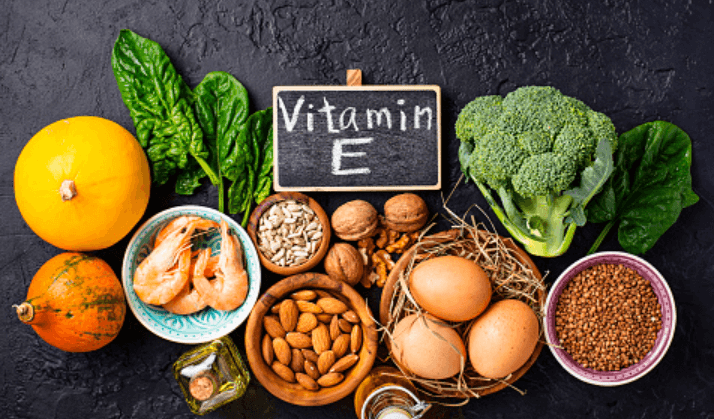wellhealthorganic.com/vitamin-e-health-benefits-and-nutritional-sources

Look no further than the powerful benefits of vitamins! These essential nutrients play a crucial role in maintaining optimal bodily function, from supporting our immune systems to promoting healthy skin and hair. In this post, we’ll explore everything you need to know about the benefits of vitamins for your diet, how to get enough of them, wellhealthorganic.com/vitamin-e-health-benefits-and-nutritional-sources and which foods are highest in these vital nutrients. So sit back, relax, and let’s dive into the world of vitamins together!
What are vitamins?
There are 13 known vitamins, each with its own unique role in maintaining good health. Some of these vitamins, such as A, D, E, and K, are fat-soluble and stored in the body’s fatty tissues until needed. Others like C and B-complex vitamins are water-soluble and must be replenished more frequently.
Vitamins serve a variety of functions within the body such as supporting healthy vision (vitamin A), promoting strong bones (vitamin D), and wellhealthorganic.com/vitamin-e-health-benefits-and-nutritional-sources aiding in red blood cell production (vitamin B12). They also play an important role in energy metabolism by assisting enzymes that convert food into usable energy.
Unfortunately, many people don’t get enough of certain vitamins from their diets alone. That’s why supplements can be helpful for those who may have deficiencies or difficulty absorbing certain nutrients. However, it’s always best to try getting your daily dose through a balanced diet whenever possible!
What are the benefits of vitamins for your diet?
Vitamins are essential nutrients that our body needs in small quantities to function properly. They play a vital role in maintaining good health and preventing several diseases. Here are some benefits of including vitamins in your diet:
1. Boosts Immunity: Vitamins such as A, C, and E help boost the immune system by producing white blood cells that fight against infections.
2. Supports Bone Health: Vitamin D is crucial for strong bones as it helps absorb calcium from food sources.
3. Enhances Skin Health: Vitamins like A, C, and E protect the skin from sun damage and premature aging while promoting cell growth.
4. Improves Vision: Vitamin A is necessary for good vision as it maintains eye health and prevents night blindness.
5. Regulates Mood: B vitamins have been found to regulate mood swings by reducing stress levels which can affect mental health.
6. Promotes Heart Health: Folic acid or folate reduces the risk of heart disease by lowering homocysteine levels in the blood.
7. Helps Digestion: Vitamin B12 aids digestion by breaking down food into energy while maintaining healthy nerve cells.
Including a variety of vitamin-rich foods such as fruits, vegetables, lean proteins, dairy products, whole grains will ensure you get enough vitamins to maintain optimal health without having to rely on supplements alone! Read more wellhealthorganic.com/vitamin-e-health-benefits-and-nutritional-sources
Get your daily dose of vitamins?
Getting your daily dose of vitamins is essential in maintaining a healthy diet.Eating a balanced and diverse diet that includes fruits, vegetables, whole grains, lean proteins, and dairy products can provide you with all the necessary vitamins.
To ensure you’re getting enough Vitamin C, incorporate citrus fruits like oranges and grapefruits into your diet. You can also obtain Vitamin C from leafy greens such as spinach or kale.
Vitamin D can be obtained through direct exposure to sunlight or by consuming fortified foods such as milk and cereal. Fatty fish like salmon are also excellent sources of Vitamin D.
Incorporating nuts and seeds into your diet can provide you with an ample amount of Vitamin E which promotes skin health among other benefits and wellhealthorganic.com/vitamin-e-health-benefits-and-nutritional-sources. Additionally, carrots contain high amounts of beta carotene which converts to vitamin A in our bodies.
Supplements may be necessary for people who have dietary restrictions or deficiencies but should always be approved by a healthcare professional before use.
Remember that obtaining your daily dose of vitamins through food is crucial for optimal health!
How to choose the right type of vitamin for your diet?
Choosing the right type of vitamin for your diet can be a daunting task, especially with so many options available in the market. The first thing you need to do is identify which vitamins are lacking in your diet and then choose a supplement accordingly.
If you have a balanced and varied diet, it’s likely that you’re already getting most of the essential vitamins from food alone. However, if you follow a restrictive or specialized diet such as veganism or keto, it may be necessary to supplement with certain vitamins.
When choosing a vitamin supplement, always check the label for dosage recommendations as well as ingredients. Make sure that the product contains high-quality ingredients without any fillers or artificial additives and wellhealthorganic.com/vitamin-e-health-benefits-and-nutritional-sources.
It’s also important to consider whether you prefer taking capsules, tablets or liquid supplements. Liquid supplements tend to absorb faster into your bloodstream compared to pills but might not be convenient for travel or consumption on-the-go.
They can help guide you towards making informed decisions about what types of supplements will best support your specific health needs and goals.
What foods are high in vitamins learn more wellhealthorganic.com/vitamin-e-health-benefits-and-nutritional-sources?
There are a wide variety of foods that are high in vitamins and can help you meet your daily requirements. One great source is fruits, which contain vitamin C and other important nutrients. Examples include oranges, strawberries, kiwi fruit, and cantaloupe.
Vegetables are also an excellent source of vitamins. Leafy greens such as spinach and kale contain high levels of vitamin K, while carrots provide plenty of beta-carotene (a form of vitamin A). Broccoli is another great choice thanks to its high content of vitamins C and K.
If you’re looking for a good source of vitamin E, look no further than nuts and seeds. Almonds, sunflower seeds, peanuts, hazelnuts – they all offer significant amounts of this essential nutrient.
Dairy products such as milk and yogurt can be a good way to get your daily dose of calcium (which is technically a mineral but often grouped with vitamins), while also providing some B-vitamins like riboflavin.
Of course there are many other examples beyond what we’ve mentioned here – the key is to eat a varied diet full of whole foods so that you’re getting all the different types of nutrients your body needs!
What are the side effects of taking too many vitamins?
Vitamins are essential for maintaining good health and ensuring that your body is functioning properly. By incorporating a variety of nutrient-dense foods into your diet, you can easily meet your daily vitamin needs.
However, it’s important to remember that consuming too many vitamins can be harmful. While some vitamins are water-soluble and excess amounts will simply be excreted in urine, others are fat-soluble and can build up in the body over time, wellhealthorganic.com/vitamin-e-health-benefits-and-nutritional-sources, leading to toxicity.
For this reason, it’s crucial to follow recommended daily intake guidelines and avoid taking excessive amounts of supplements or multivitamins without consulting with a healthcare professional first.
By being mindful of both the benefits and potential risks associated with vitamin consumption, you can make informed decisions about how best to support your overall health through proper nutrition.




